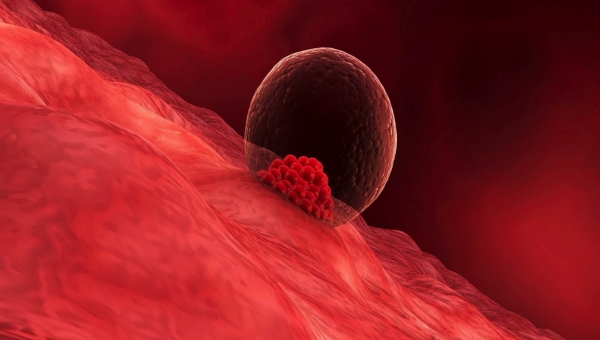
One of the most common questions patients ask following IVF treatment is “What are my chances of getting pregnant? Do I need to store more embryos?” Though there are a multitude of variables which affect the answers to these questions (age, prior history of pregnancy loss, cause of infertility, desired number of children, and more), our patients deserve an evidence-based response which may shed light on their potential to conceive. Thankfully, with decades of data collected through a variety of institutions, we are able to better answer this question.

We’ve offered insight on egg freezing as a treatment for infertility at our clinic in The Woodlands and Kingwood, but embryo freezing is another option we offer.
Embryo Freezing vs. Egg Freezing
The main difference between freezing eggs and freezing embryos is that embryos require fertilization with sperm. When patients decide to attempt egg freezing, the eggs are extracted and then frozen so that they can be used at a later date. When it comes to embryo freezing, on the other hand, eggs are extracted, then fertilized in our Houston IVF lab, and then frozen for use in the future.
When patients freeze their embryos, we are able to complete Preimplantation Genetic Testing (PGT), which helps the team at our Houston fertility clinic determine which embryos have the best chance at resulting in a successful pregnancy. This is just another service we offer to help our patients achieve their dreams of experiencing the special, unique joy that children provide.
How Does Frozen Embryo Transfer Work?
Frozen Embryo Transfer (FET) takes place when the patient is ready to try getting pregnant. At this time, we will prepare the uterus to accept the embryo with the use of hormonal manipulation. Once the uterus is ready, we will thaw the embryo and inject it into the uterus with the help of an abdominal ultrasound. The patient won’t feel any pain when this occurs.
Who Can Freeze Their Embryos?
Virtually all women who want to be mothers in the future can benefit from embryo freezing, but Doctor Toral Parikh, one of our Houston IVF specialists, notes that other groups can also benefit from this treatment, such as:
- People suffering from genetic disorders that affect reproduction
- People who are about to undergo chemo
- People who take medications that may affect fertility Same-sex couples
- People in the LGBTQ+ community who may want children in the future
HART Fertility Specialists in The Woodlands and Kingwood Wish to Help You Have Children
If you think embryo freezing may be a great way to help you preserve your fertility, then please book an appointment with our caring specialists in North Houston. Our team will gladly answer all your questions and support you throughout the entire process.
We have recently analyzed our data for the past 5 years. We are proud to announce that our fertilization and blastocyst (day 5 embryo) formation rates have been consistently very high.

At HART Fertility Clinic in Kingwood and The Woodlands, we want all of our patients, whether they be young couples, older couples, LGBTQ+ couples, or single, to have a successful pregnancy so they can experience the special joy children bring. In order to achieve this, we offer Preimplantation Genetic Testing (PGT) in an attempt to make fertility procedures more successful.
What is Preimplantation Genetic Testing?
Did you know that your embryos can be tested prior to being transferred into your (or your donor’s) uterus? This is done through In-Vitro Fertilization (IVF), which means eggs are fertilized by sperm outside of the body. When completing genetic testing we perform a simple biopsy, which can give us insight on embryo quality by showing any genetic abnormalities that may affect your chances of achieving a successful birth. Genetically healthy embryos are then transferred to the uterus.
Who Does HART Fertility in North Houston Recommend PGT to?
With her extensive research and experience in Reproductive Endocrinology and Infertility, Doctor Dorothy Roach, M.D., recommends PGT for couples that are undergoing North Houston IVF fertility treatment if one or both partners have a history of genetic disorders. She also recommends it if one or both partners possess an Aneuploidy, which refers to an abnormal chromosome count.
PGT may also prove beneficial if one or both parents is a carrier of a translocated chromosome. A translocated chromosome is one that has broken and incorrectly repaired itself during the cell growth process. Often this results in one part of the chromosome meshing with another part of a different chromosome. Mothers who are of advanced maternal age and/or has had a history of miscarriages may also benefit from PGT.
Preimplantation Genetic Testing May Help Improve Chances of Your Fertility Treatments Working
Our fertility specialists in North Houston recommend PGT because it can help us and the intended parents gain a better idea of which embryo will have the greatest success. If you would like to take part in genetic testing through IVF, please schedule an appointment with us in Kingwood or The Woodlands. We look forward to helping you also experience the joy and love of a child.






